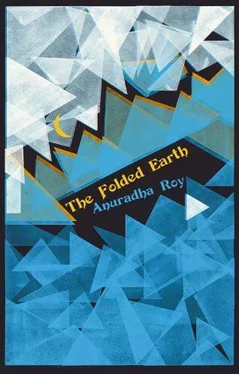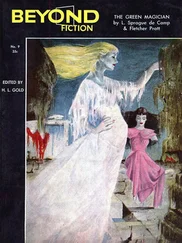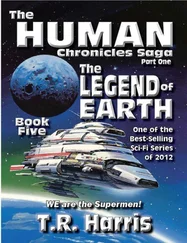She got off the bus, too confused to say yes or no to the autowallahs sidling up to her with, “Share Auto? Where to?” She stumbled about, trying to find a slightly empty spot where she could stand and wait for Kundan. Nearby, a transvestite in a shimmering green-gold sari and long earrings went from person to person nudging and flirting to make them give her money. She poked Charu in the waist and said, “Setting up shop?” Charu leaped backward in alarm. An old man snatched her out of the way of a reversing bus and shouted, “Are you blind?”
Charu scanned the crowd for a face that looked kinder than the others, but nobody had time to stop. All the people around her were in a hurry, either getting on buses or off them or hunting for autos, or looking for relatives or buying tickets from hectoring touts. Everyone else knew what to do and where to go. She plucked up courage and asked a woman, “Could you tell me … “, but the woman pushed her aside to run after a bus that was revving its engine and leaving. There was so much noise: a vast confused mingling of horns, voices, vendors’ shouts, engines. All the faces from her own bus, that had grown familiar to Charu over the eight hours they had travelled together, had melted away. She felt alone as she never had on the most deserted hillside or deepest forest.
She was standing there wondering what to do, when a man came up to her, narrow-waisted, barrel-chested, in black shiny trousers and a belt with studs. His shirt buttons were undone to his navel and concentric circles of shiny chains roped his neck. His hair was a puff on his head, on his wrist was a large, square, plastic watch. He looked at it, and said, “Thirty minutes. You have been here half an hour. Waiting for someone?”
She turned away. Her letter had probably got lost, she thought, and Kundan had not come. She needed to find her way to his house.
“How much?” he said.
She looked at him, startled. His lips were blackish red, the teeth smiling through them were yellow, and she could smell gutka on him. She was confused, and repeated, “ ‘How much?’ What do you mean, ‘How much?’”
“Ah,” he said, “I see.” Then he seemed to think a little and said, “I have a scooter, and I can take you for a short distance. Not too much, not too far, but if you want to go a little way, I can drop you where you want.”
Something rang an alarm bell inside her and she began to walk away from him. He followed her, saying, “What’s the matter? All I am offering is a good ride!”
She half-ran, and still he followed her, towards the line of autos that stood at the entrance to the bus stand. She approached the auto rank. The drivers, all in grey shirts and trousers, as if they were an army, were standing around waiting for customers. When she came up they went silent. The man following her had fallen away. The driver near the first auto asked her: “Where to?”
Charu extracted one of Kundan’s letters from the rubber-banded bundle for the address. She held it out and said, “The address is here.”
The man took the letter and said, “Hey, who can read this?”
The driver next to him said, “Give it here … Sundar Nagar.”
A few of them whistled. “Rich woman,” one of them said. “How much will you give? It’s not cheap, you know, Sundar Nagar. It’s far away.”
“Whatever is to be paid,” Charu replied, not knowing what to say.
“Whatever is to be paid, she says!” the man laughed, slapping his thighs. All the men had gathered around her. They looked her up and down and said to each other, “Whose is she? Who’ll take her for a ride?”
In her confusion, Charu had not held tight to her cloth bag. She felt a tug and her bag leaving her shoulder. She screamed in panic and leaped in the direction she saw the bag going. A rough hand grabbed hers and pulled her away from the crowd. Before she knew what was happening, her bag had been flung into an auto, and she had been pushed in after it. The driver bent and yanked its starter. It would not start. Two of the other auto drivers ran towards him and shouted, “Sister-fucker, bastard, she’s ours.”
The man who had grabbed Charu yanked the engine handle again. This time the engine held and he swivelled the auto in a sharp circle and accelerated, charging past the men still yelling after him. Charu cowered in the seat, rigid with terror. She clutched her bag and began to pray in a fast mumble to Jhoola Devi. “I will tie a bell if you keep me safe,” she said, again and again. “I’ll tie a big fifty-rupee bell.”
When they were well away from the bus terminus and on a wide road, a traffic-light forced them to stop at an intersection. Small children ran from car to car, begging for change. Charu turned away, afraid they would demand money from her when she had nothing to give them. She studied the rough black hair on the back of the auto driver’s head, and noticed that his ears were pierced. On the panel above his head, were three words in Hindi, painted in red. She stared at the line and tried, letter by letter, to see what the phrase added up to. “Ga,” she mouthed, “Oh-lah-Uuh” She understood at length that the letters made up the words: “Jai Golu Devta”. All hill drivers prayed to Golu Devta for safe journeys. She began to feel a flutter of hope. The man driving her turned around. As soon as she saw his face, relief surged through her. But still, she could not be absolutely sure.
She asked him, “Are you a Pahari?” She could see from his facial features that he might be from the hills.
“What did you think? That I run to rescue every girl those guys harass this way?”
She said nothing, but could not stop a radiant smile. So he said, “Why alone? They would have made you vanish and robbed you before you knew what was happening.”
“I am visiting a relative,” she said. And partly to change the subject, and partly out of curiosity, added, “Where are you from? Kumaon or Garhwal?”
The light turned green and the auto tooted and puttered through the huge din of moving cars, buses, tempos, scooters. Charu shrank behind its fluttering window shades each time a car tore past them as if it would run them over if the flimsy little three-wheeler dared stand in its way. Buses towered over them, honking at their slowness. With the breeze sweeping through the two open sides of the auto and the noise from the road, she could hardly hear one word in ten of what the man was saying, but his reply, which he shouted, was: “I’m from a village near Almora. And you? Where are you from?”
She could have cried or danced with joy. Almora! The town closest to her own, where so many people she knew had been. To which she had often been told she would be taken. The Almora whose famous Singhori sweets she had eaten, the ones that came individually wrapped in fresh green leaves.
“Ranikhet,” she breathed, her voice caressing the familiar name. “I am from Ranikhet.”
Diwan Sahib came home from hospital at the end of October, after more than a month there. Veer, who had just come back from the Valley of Flowers, wrapped him in a thick blanket and carried him for the few steps Diwan Sahib would have had to walk to reach the jeep parked at the hospital’s entrance. And whereas it was Veer’s habit to drive on twisting hill roads as if he was on an arrow-straight highway, today he eased the jeep watchfully over every bump and pothole, and took the loops at a crawl.
Some of the joyousness of our earlier days was restored. Diwan Sahib was as fragile as a dry leaf, but revived enough to go back to a gin in the morning and his evening rum. He was hungry for all the news of the hillside. When he heard how Charu had eloped and married, he laughed until he coughed and laughed again, telling me I had done my life’s one good deed. He insisted on hearing the story from Ama as well, chuckling at her embellishments. His durbar and our newspaper sessions resumed. Mr Qureshi once more became a fixture at the Light House, cradling his steel glass, and shaking his head when he thought back to the day he had taken Diwan Sahib to hospital. “I never thought I would reach the hospital in time,” he said. “Truly, I thought Diwan Sahib would — ”
Читать дальше












